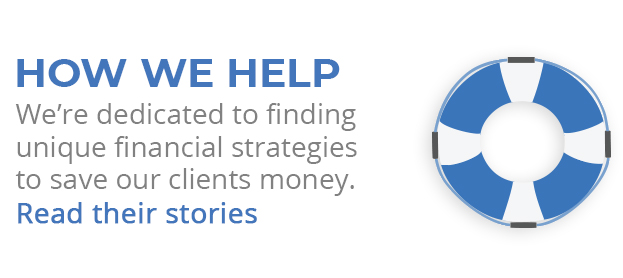
The importance of excellent financial health cannot be overemphasized.
The lifestyle you desire and the goals you want to achieve either requires or can be enhanced by an expense. This is pretty obvious for those dreams where we want something. For example, travel, better car, fishing boat, bigger house, vacation cottage, Rolex watch, and diamond earrings are expenses. It takes money to obtain each of these goals. Without the necessary finances, you will never accomplish these goals.
What about the vision of accomplishment?
Regardless of what you want to accomplish, it requires money or can be enhanced with money. For example, working fewer hours, learning a new language, earning a master’s degree, learning how to play the piano, exploring the Amazon, diving the Great Barrier Reef, and so many others requires you to write a check.
Most people’s number one goal is furthering their education. Yet if, for example, you want to earn your master’s degree, unless you are one of those incredibly rare individuals who earn a full scholarship, tuition requires money. Even if you take a loan, you must eventually repay it.
Let’s examine a less obvious example.
If your goal is to learn a new language, you could borrow a book from the library or buy an audio program and learn the basics of a new language. While learning a new language this way wouldn’t cost you much, if you had money, it could shorten the time you needed to learn the new language. How? If you had money, you could spend time in the country of the language’s origin, you could get a personal language tutor, and you could take group classes. Money, in this situation, would shorten the time it would take you to learn the language and would enhance your ability to speak the language. The difference is dramatic between reading a language book from the library and immersing yourself in the language and customs of a new country.
Finally, even many of those goals that support your vision of who you want to be can be enhanced with money, but it’s important to first understand that shaping who you want to be doesn’t require money. You can be generous, caring, good-natured, funny, optimistic, honest, loyal, courageous, wise, dependable, any so many other worthwhile characteristics without a dime to your name. I’m sure you’ve known countless people in your life that didn’t have any money but who had become someone you admired, respected, and would like to emulate. My grandmother was one such person. She had every quality I could hope to obtain. She was rich in character, but had very little financially. Money was not necessary for her to be that caliber of person.
Yet, you can use money as a tool to help enhance who you want to be.
How? If your goal is to be more generous, excess money can certainly enhance your joy in accomplishing this goal. By having more, you are able to give more. If your goal is to be wiser, you can use money to take classes on subjects that interest you. If your goal is to be more dependable, you can use money to complete a time-management program. If your goal is to be funny, you can use money to take a stand-up comedy class. If you goal is to be more compassionate, you can use money to visit countries struck by famine or to learn about and visit Anne Frank’s home in Amsterdam. If your goal is to be a great communicator, you can use money to hire a personal speech coach. Almost any goal that helps you become the person you desire can be enhanced with money.
Some people have a hard time thinking of money as a tool.
Money has no value other than what it can buy. Don’t be a slave to money. See it for what it really is—a way to enhance your goals. When you are on your deathbed, you won’t ask yourself, “Why didn’t I make more money?” Instead, you might ask yourself, “Why didn’t I go on that African safari, donate to that charity or help support my son’s entrepreneurial spirit?”
The objective of this exercise is to assign a dollar amount to as many of your IMPACT-Goals as possible.
This will be easy for many of your goals. If one of your goals is to own a new Mercedes SL 500, you can quickly determine how much this will cost. If your goal is to spend four weeks traveling throughout Europe, with a little research you can assign a price tag to this goal as well.
It may take some creativity to come up with an expense to support your goal.
As an example, part of my career vision is to help as many people I can to accomplish their goals. This is a vision that excites and inspires me. In order to turn this vision into a reality, I have created several IMPACT-Goals to support it. It wasn’t easy to think of individual goals that would help me get closer to realizing this dream, but with a little creativity, I developed a few. I quickly realized that my time is limited—I can only work with a fixed number of clients individually. Yet, by writing a book, I could teach thousands of people how to accomplish their goals through better financial health.
Now it’s your turn.
For each of your IMPACT-Goals, think of as many things you could do to help you accomplish the goal. Some of these things won’t cost you anything. For example, jogging three nights a week or reading to your children. For those that do cost money, assign a dollar amount to each of those strategies. For example, completing your Bachelor’s degree may cost $6,500 or taking time off of work may cost several hundred dollars in lost wages. Don’t forget about your Independence Factor! One of your primary Financial Health IMPACT-Goals should be to increase your Independence Factor to at least 31.
The proceeding blog post is an excerpt from The Six-Day Financial Makeover: Transform Your Financial Life in Less Than a Week!, available now on Amazon.

About the Independent Financial Advisor
Robert Pagliarini, PhD, CFP®, EA has helped clients across the United States manage, grow, and preserve their wealth for the past 25 years. His goal is to provide comprehensive financial, investment, and tax advice in a way that was honest and ethical. In addition, he is a CFP® Board Ambassador, one of only 50 in the country, and a real fiduciary. In his spare time, he writes personal finance books, finance articles for Forbes and develops email and video financial courses to help educate others. With decades of experience as a financial advisor, the media often calls on him for his expertise. Contact Robert today to learn more about his financial planning services.










